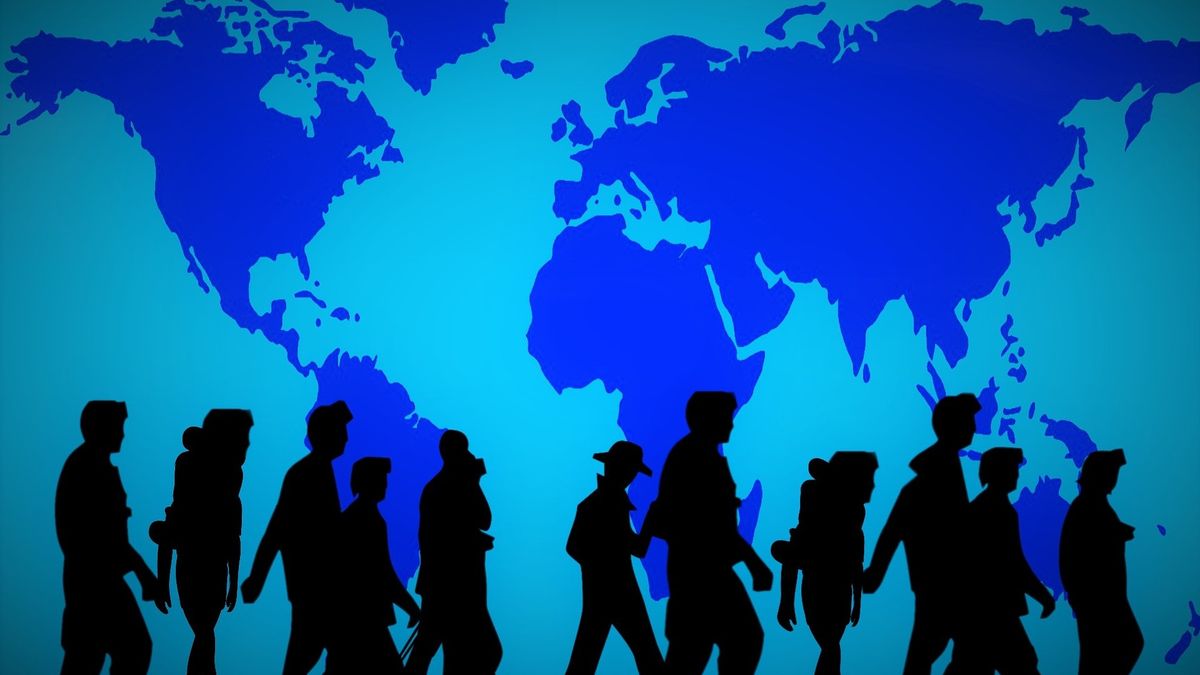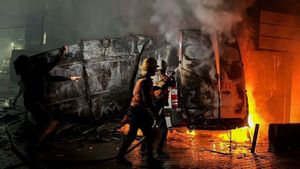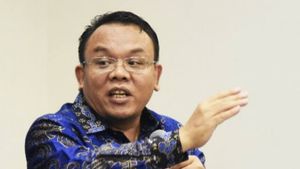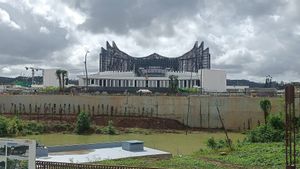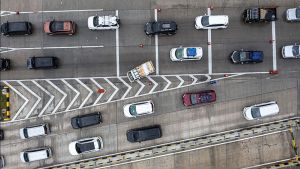JAKARTA - Life as a refugee victim of war is certainly not easy. In DKI Jakarta, a city that is the epicenter of the transmission of COVID-19. This is the life story of 250 refugees, mostly from Afghanistan, Somalia and Myanmar.
The refugees began to feel panic. One of them is a refugee from Afghanistan, Zakir Hussain. He currently occupies a building provided by the DKI Jakarta Provincial Government. But, of course, life is far from normal. The density in the evacuation places makes transmission vulnerable there.
As reported by Channel News Asia, the building occupied by refugees can indeed accommodate up to 1,100 people. However, with only 250 people filling in, the building was crowded, making it difficult to comply with the recommendation of physical distancing.
"If one person is sick, then the others will follow because there is no physical distancing, because we cannot keep our distance. In fact, there are more than 200 people here," said the 25-year-old man.
The condition above is also increasingly worrying because the building only has a toilet with limited water and electricity supplies. As a result, the refugees have problems washing their hands and cleaning themselves regularly. Though cleanliness is part of the resistance. "We are desperate," said Zakir.
Not only that, the food that was originally supplied regularly by the DKI Jakarta Provincial Government has now stopped, coinciding with the government's demands for refugees to start leaving the place no later than August 31 last year. As a substitute, each family was given Rp1 million at that time.
Unfortunately, many do not accept the offer on the grounds that the money given will not last long. Not to mention, the refugees even have the desire to be transferred to developed countries, such as Australia. The request has not yet been fulfilled.
It's hard to worshipIn the midst of distress, an official from the DKI Jakarta Provincial Government came to visit the refugees. He distributed aid in the form of hand sanitizers. At that time he also recommended the importance of prevention measures for COVID-19.
A suggestion that is easy to say but very difficult to implement, the refugees feel. Not only that, the refugees are also getting worse with the constraints of praying.
“Everyone is depressed now, especially during Ramadan. It is very difficult for us to take ablution water at sunset or at dawn when we want to worship, "said Zakir.
"More than 200 people want to go to the toilet at the same time," he added.
For that, they worked out a way to the nearest supermarket to use the bathroom. In another sense, the refugees could not obey the government's advice so that people continue to study, work, worship from home.
It's hard to get foodSadly again, for their daily meals, the refugees are very dependent on the kindness of the local population. This is their last resort because the government does not allow refugees to work in Indonesia.
Zakir said the kind-hearted people often gave them drinking water, bread and sometimes instant noodles which they considered a luxury meal. Inevitably, due to limited food supplies, they often skip breakfast.
Given that the food they eat is low in nutrients, they are not sure they can have the best immune system to fight COVID-19. Moreover, now it coincides with the entry of the month of Ramadan, which means they have to fast to endure thirst and hunger. No doubt, their immunity will be slightly compromised.
“The adults will be fine, they will survive. But what about children? They don't have milk, and they can't even go to the doctor for a medical check-up, ”said Zakir.
Government effortsThe representative of DKI Jakarta Provincial Government, Taufan Bakri, revealed that the Provincial Government really understands the conditions of the refugees. In fact, they have coordinated with UNHCR - the UN agency that takes care of refugees - in providing assistance to refugees. Unfortunately, the COVID-19 pandemic has put these plans on hold for the time being.
Bakri revealed that the DKI Jakarta Provincial Government currently has other priorities. This is because there are around 1.2 million poor people who have to be taken care of by the government. "Actually we are very concerned, but with the current conditions we cannot do much."
He also explained that in fact the DKI Provincial Government has no obligation to care for refugees. "We feel sorry for them but there is only that we can do. However, we still facilitate basic necessities such as water and electricity," he said.
Even so, after the pandemic ends, the DKI Jakarta Provincial Government will again discuss with related parties about the steps they should take for the refugees. Especially, regarding the possibility that no country would accept them now, given the world economic situation that is currently in ruins.
The English, Chinese, Japanese, Arabic, and French versions are automatically generated by the AI. So there may still be inaccuracies in translating, please always see Indonesian as our main language. (system supported by DigitalSiber.id)
